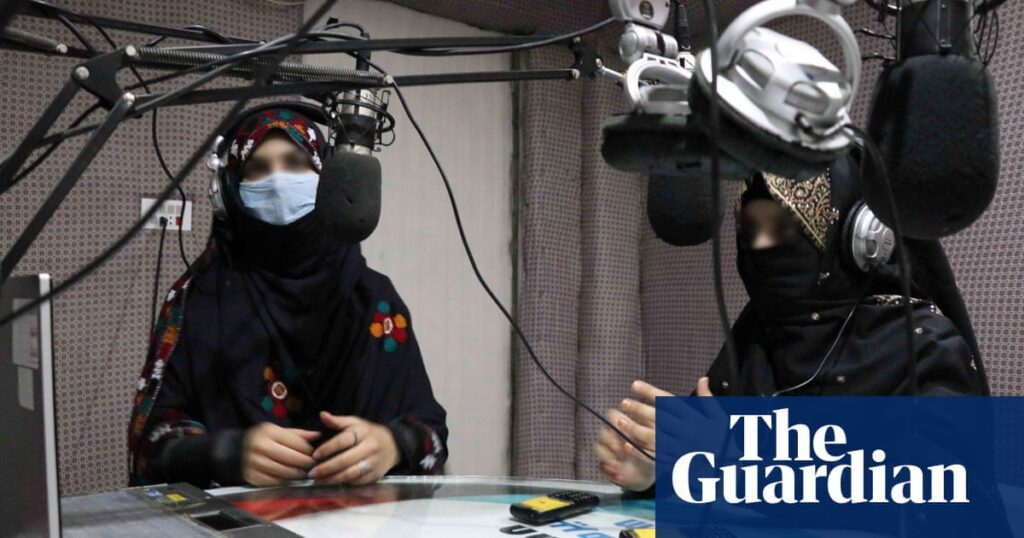The Role of Female Journalists in Afghanistan’s Struggle for Voices
When the Taliban began their advance towards Afghan cities in the summer of 2021, a pivotal moment unfolded for Alia*, a 22-year-old journalist. This period marked some of the most significant work of her career.
Reporting Amidst Turmoil
In the lead-up to the August takeover, Alia’s voice resonated through the radio waves in northern Afghanistan. She provided coverage on the withdrawal of international troops, the encroachments on government offices, and the arrest of former officials in her area.
Most importantly, Alia focused on women’s issues, capturing their fears and concerns—feelings she shared personally. As restrictions by the Taliban escalated, she became a chronicler of a troubling historical pattern.
A Legacy of Women’s Rights
“I grew up understanding the Taliban’s past oppression of women during their previous rule from 1996 to 2001. Much of my reporting aimed to highlight the consequences of such radical ideologies on women’s progress in Afghanistan,” she notes.
Having joined the station fresh from university in 2019, Alia felt a deep passion for her work, even as the specter of Taliban rule loomed over her.
We demonstrated to the world that the Taliban have not changed and will not change. And it frightens them.
Media Crackdown and Consequences
The Taliban’s crackdown on media became apparent almost immediately after the takeover, with the UN reporting 336 instances of arrests, torture, and intimidation of journalists between August 2021 and September 2024.
This situation has posed particular challenges for broadcast reporters like Alia, who can be easily recognized. In many regions, women have been completely banned from participating in radio broadcasting.
In those chaotic early days post-takeover, while facing threats from Taliban members, numerous journalists either went into hiding or sought refuge in other countries. Alia’s employer took her off-air temporarily for her safety, yet she continued to gather news, especially around women’s issues, despite the risk of backlash.
Repression of Female Voices
By 2022, local Taliban leaders began issuing threats to Alia’s employer for hiring female journalists, ultimately leading to her dismissal for their safety.
“Being asked to leave because of my gender was devastating. I aimed to amplify women’s voices, never imagining that mine would be silenced one day,” she reflects.
Over the subsequent years, women have faced systemic exclusion from public life and the media. Initially, a national ban on women’s voices in public emerged, and most recently, one of the last female-operated outlets, Radio Begum, was silenced. Its offices were stormed, staff arrested, and the station’s broadcasts halted.
While the Taliban justified the raid on Radio Begum as a breach of broadcasting regulations, the staff insisted they were merely offering educational resources for women and girls seeking to continue their learning amidst rising restrictions on female education.
The Shrinking Media Landscape
The Afghan media landscape has contracted drastically under pressure and enforced closures. Before the Taliban takeover, Afghanistan boasted approximately 543 media outlets with around 10,790 employees. By November 2021, 43% of these outlets were shuttered, leaving only about 4,360 media workers active, with an even more significant impact on women in journalism.
As of March 2024, a grim report from the International Federation of Journalists estimated only 600 female journalists remained in the country, a drastic reduction from 2,833 prior to August 2021.
“The hopelessness and despair I feel are indescribable. You must be an Afghan woman to truly grasp the difficulty of relinquishing all that you fought for. We have shown the world that the Taliban remain unchanged, and that truth terrifies them,” Alia states.
Some women continue to broadcast in northern provinces, thanks to divisions within the Taliban regarding women’s exclusion from society. Alia emphasizes that radio, particularly in a nation where poverty is rampant and access to the internet and television is limited, remains a potent medium. Families depend on radio for news and information.
“Media serves as a vital means to shed light on the Taliban’s actions against women and other marginalized groups. It raises awareness through platforms like Radio Begum,” she asserts.
*Name has been altered to protect her identity.


